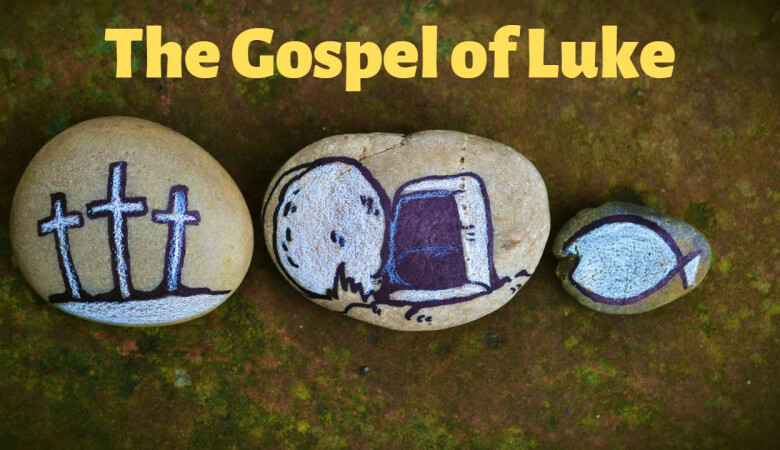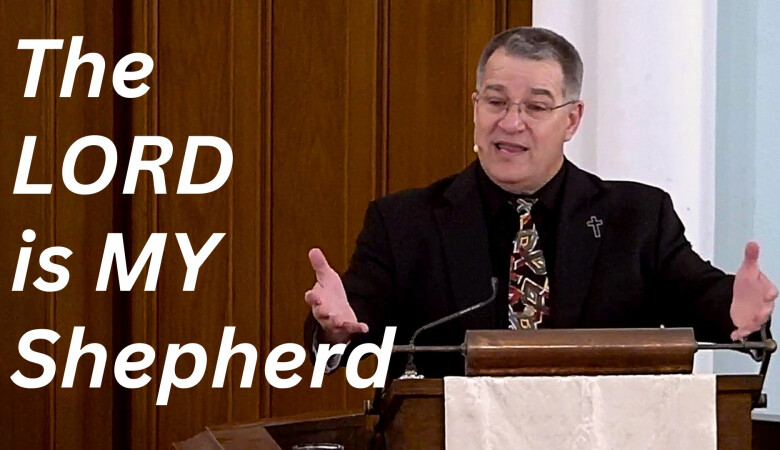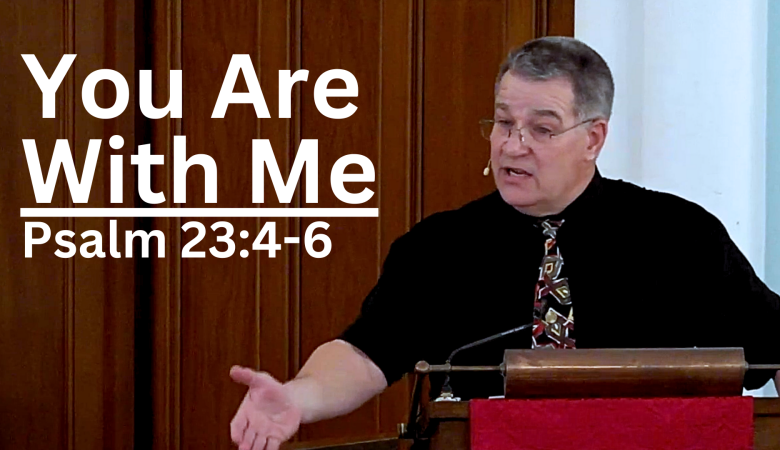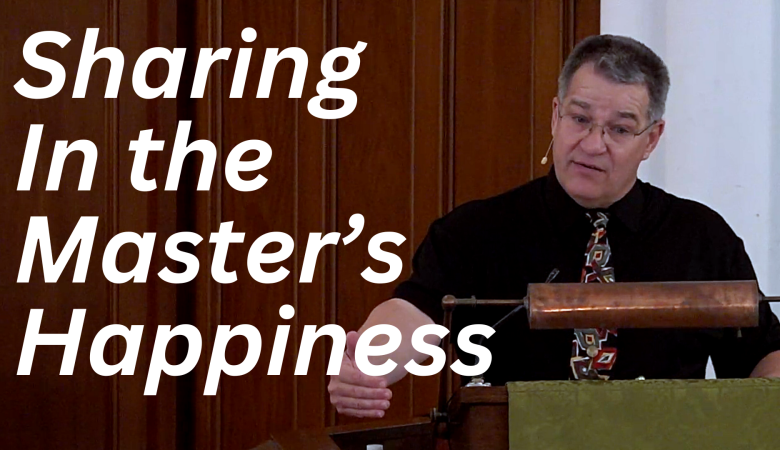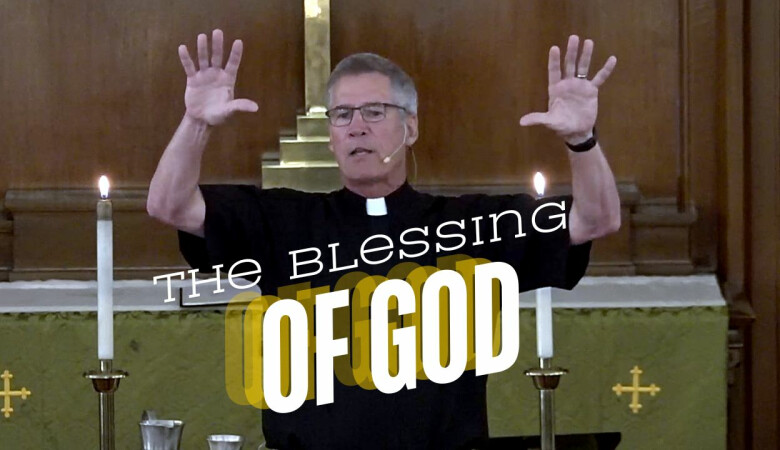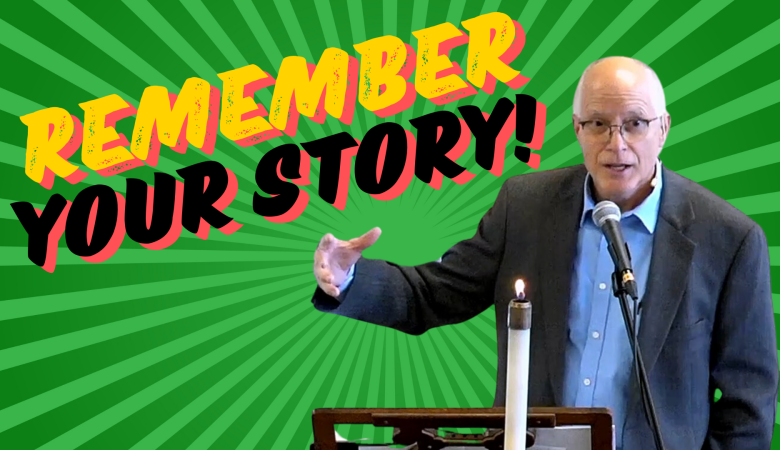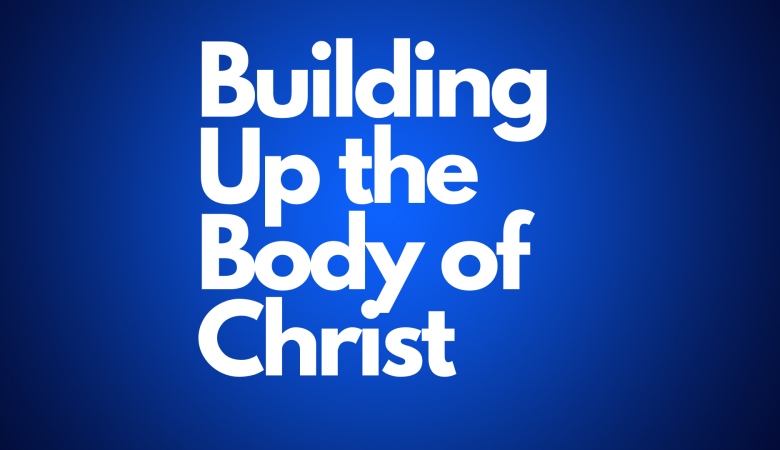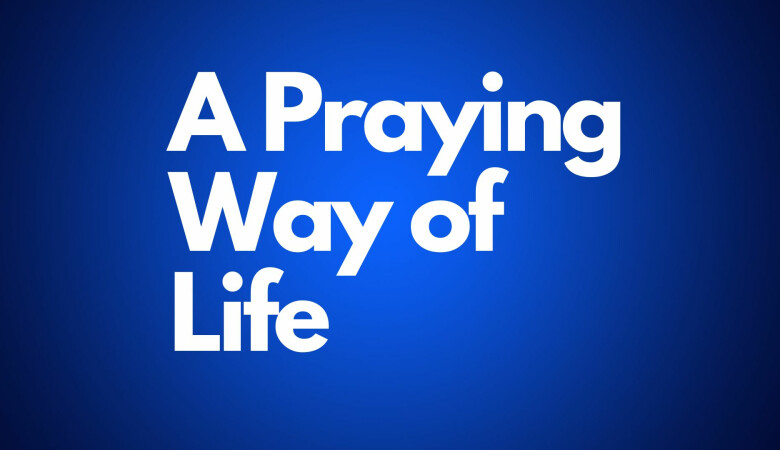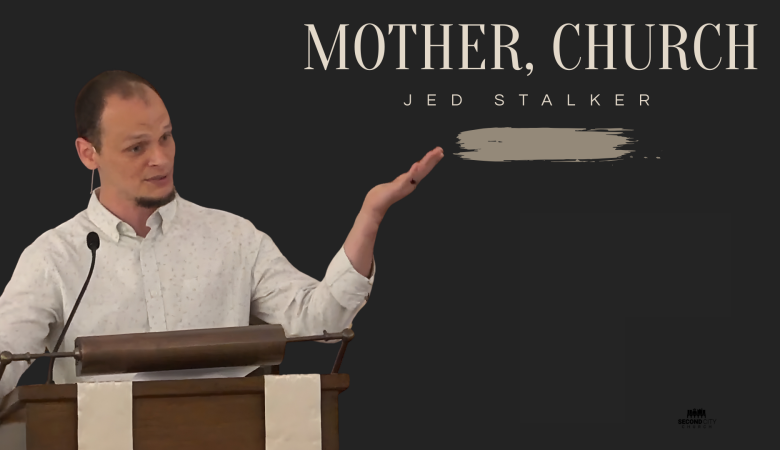Series: Guest Preachers
The Repentance of Job
November 12, 2023 | Andy Phillips
Passage: Job 1:1-42:16
ALL SERMONS IN SERIES
Summary
Job is described as "blameless," yet Job suffered - terribly. The book of Job is frequently consulted for answers about suffering. It may ask more questions than it answers. Job was blameless. Why would he repent? Why did he suffer so?
Transcript
I've been over the last several years kind of fixated on some of the more challenging questions of the Christian faith. And some of it is I have the freedom now that I'm not preaching every Sunday to sit back, to relax, to dig in, to reflect. And so I've been doing that wrestling with issues of unanswered prayer, those kind of harder questions that stretch us and that in a lot of ways we'd much rather ignore.
But at the same time, there has been, it seems at least in our lives, Linda, in our lives an increasing number of people that are close to us that are facing life changing, radical, even life and death sort of challenges. And so I was kind of driven to Job initially because this close friend of ours who we've known for over 20 years, mom worked for me, dad who is battling a terminal brain cancer, has been last we heard, given about nine months to live.
And I was kind of struck, how are they dealing with this? And then I thought, well, Job speaks to suffering. So I'll go to the book of Job and I preached on Job, I think this summer here. So some of this for you, I recognize as a repeat. But what I went to Job for initially is for answers.
How does Job speak to us in those moments when we're going, God, what is up? Why am I suffering? Why aren't you answering? Why aren't you fixing? And I think more to the point, I was curious because I've been asked already to speak at this friend's funeral.
How is Job a comfort? How is Job a comfort to their 20 something daughter who is close with dad, who lives a good distance away and is struggling with that loss? How does Job speak to that?
So I went to Job for answers.
And you know the narrative of Job, I suppose most of you know it, the long book, 42 chapters, it opens with Job being presented. He's an unusual character, not a Jew. The book focuses on that. The book of Job is in the middle of wisdom literature and needs to be taken as that. And we can speak to that later.
But anyway it opens and presents this man who is described as blameless, without fault, no evil. And then Satan appears before God and says, "Hey, this guy Job, he's just doing the nice things obeying you because his life is good. Let me afflict him and we'll see how good he is." And so he's afflicted, he loses everything, he loses his possessions at home, he loses his kids, and still Job remains faithful. And then Satan comes back and says, "Hey, yeah, well, you take everything but he's healthy so he'll be fine as long as he feels good." And God says, "Have at it." And so he's afflicted with these boils.
And so the rest, the bulk of the book, 30 some chapters, is spent with Job suffering, complaining, calling out to God. He's got these friends that show up and you think, "Oh, great, here's good comfort." And for the first seven days they comfort him by saying nothing. They just sit with him. But then they start giving him advice. Then they start talking to him, start giving him reasons why he's suffering.
In that larger narrative, chapter upon chapter, and finally God shows up, Job repents, and Job is restored. And that's sort of the big picture. But one of the things that I discovered is I'm wrestling with this book looking for answers. I found that my presuppositions or assumptions in terms of the way things should work, in terms of what my theological understanding and framework said, kept me from finding comfort in this book.
The Resolution
And it's all brought to a head when we look at verse 6 of chapter 42. In verse 6 of chapter 42, Job says that he despises himself and repents in dust and ashes. And this is in response to God showing up. And so the question I'm left with is, wait a minute, the opening verses of Job talks about Job being a blameless and upright man, a man who fears God and shuns evil, chapter 1 verse 8. How do those two things go together? How do they fit?
The repentance of a blameless Job?
And the more I thought about it, the more I kept wrestling with it. And we assume that Job's confession in verse 6 of chapter 42 is a confession by Job that he was wrong to rail against God, and that he was not in fact really blameless. And that was my presumptive narrative. Job complains about God's suffering, God's testing with his suffering. Job finally repents of his sin of complaining, and the complaining spirit, and God blesses him. That was my assumption.
But we also must conclude that Job is being punished by God, and what he's repenting of is not just his complaining, but also his hypocrisy as the blameless one. The more I dug, the more that was unsettling to me. It seems so inconsistent with the immediate context of the book.
The Tyndale Old Testament commentary series, very well known, very well respected in our circles. The writer on Job says, "The book of Job loses its point if the righteousness of Job is not taken as genuine." Wow!
And as you step back and think about that, what does that mean? The issue is, the issue is for us, does the text of Job allow that?
What God says about Job in verse 7 of chapter 42, he says, "I am angry with you and your two friends," speaking to Job's counselors, "because you have not spoken the truth about me as my servant Job has."
Can we take the text of Job seriously and therefore allow Job to be, as the text says, "blameless and upright, a man who fears God and shuns evil"?
And I hear that and I go, "Wait a minute, my theology doesn't allow that. We've all sinned, all fall short of the glory of God." What do we do with that? Can we at least acknowledge, and what was helpful for me was to go there, can we at least acknowledge that in the book of Job, in the text of Job, this is the perspective presented. And it's the perspective that everybody holds except Job's counselors.
What do Job's counselors say to Job repeatedly in a variety of different forms? You must have sinned. You must have done something. If you just repent, God will bless you and give you everything back. They even go so far as to say, "You know, your children sinned," and that's why they got what they got, chapter 8.
Really nice counselors.
And further, if Job is repenting of his railing against God, if this is the case, what do we make of at least eight Psalms that I can think of that present just that? Psalms of lament, Psalm 13. How long, Lord, will you forget me forever?
How long will you hide my, how long will you hide your face from me? How long must I wrestle with my thoughts day after day, sorrow my heart? And then, excuse me, Psalm 88. You have put me in the lowest pit, in the darkest steps. Your wrath lies heavily on me. You've overwhelmed me with waves. You have taken from me my closest friends and have made me repulsive.
Psalm 89, read that, it's a long one. Starts off great. But the psalmist is backing God in the corner and praises God for his steadfast love. And then, in the end, goes, what's up? It's not there?
If in fact Job is blameless, Shun's evil speaks the truth about God, what do we do with his repentance? What's he repenting of?
“I despise myself and repent and dust and ashes.” The answer, not really clear.
And I guess if I was going to be completely transparent, I'd say, you know, I really don't know for sure. The Hebrew is not clear. And you can read dozens of commentators, and I've looked at a variety of different traditions and approaches to this. And there's different ways to take it.
But one of the best that I've seen, knowing that Job, that God's response to Job's repentance, that God's response to Job overall is that he has spoken the truth about God. And it helps, perhaps, if you notice, and if you look at your own translations, you'll see this, the word myself is not in the original text.
So if you pull that out and you read it, "Therefore I despise and repent and dust and ashes." Another way to read that would be, I reject, another word for that, reject, despise, and repent of dust and ashes. And I like what one scholar suggests.
They suggest what Job is doing is repenting of dust and ashes. In other words, suggesting that Job is getting up from his ash heap of sorrow and loss to get on with his life, ultimately leading him outside of himself from his time of sort of focused on his challenges.
That's not clear, but I think it's probably the most consistent way to blend Job's blamelessness and his repentance. And frankly, there's a lot that's not clear in this text, but what is clear is that Job was blameless, shunned evil, spoke the truth about God, and perhaps most important to us, Job's transformation and renewed perspective comes without anything getting better. If you look at chapter 42, he is responding, and he is responding to the fact that God has shown up.
God has shown up, chapter 38 through 40
And Job says, and we read in chapter 42, verse 5, the NIV puts it, "My ears had heard of you, but now my eyes have seen you." The New Living Translation puts it like this. "I'd only heard about you before, but now I have seen you with my eyes."
In some sense, Job had seen God, and that was enough. That was what he was waiting for. That ultimately what he was hoping for and continued to build his hope on all through the challenges that he was facing in his suffering and through the advice of his counselors.
And as you read through the book of Job, and I encourage you to do it, it's a challenge, but it's worth doing, you'll notice this continual confidence, a continual strong hope that he would see God.
Very famous, well-known verse, a couple of verses in Job, chapter 19. "I know that my Redeemer lives, and that at the last he will stand upon earth, and after my skin is thus destroyed, then in my flesh I will see God." Now I use that at funerals and talk about our Redeemer Jesus, but don't run too fast past that because Job is holding on to this hope in the midst of his struggle, in the midst of his anguish, in the midst of the silence of God that God would show his face, that he would see God in whatever sense he meant that.
God as his Redeemer, he knew he would appear
So how does this all help with suffering? What does it teach us? How does it offer comfort? I think a couple of things. First, we need to learn to lament. We are terrible at that. And I'm not talking the repeating words of the Psalmist necessarily, but Job's focus for 30-some chapters is lamenting, lamenting. He complains, he pleads, he demands that God shows up and answer. He even says, "Hey, I just need to get in front of you to make my case."
And the heart of his complaint is that Job is silent or that God is silent and unresponsive. Chapter 13, "Why do you hide your face from me? Why do you consider me your enemy?" Later he says, "I cry out to you, God, but you don't answer. I stand up, but you merely look at me."
Don't we feel that sometimes?
Don't we feel that?
You're just looking at me. I know you're there, but you're unresponsive.
God's final endorsement of Job's speeches is also surprising for another reason. It's just one commentator. It silences the sanctimonious talk of those who remind us of the inscrutability of God and smugly say, "It's not us, it's up to us to question the ways of the Almighty." For that is precisely what Job does. And God says that he was fully justified in doing so.
The Lord welcomes this exercise of moral judgment from man's side, even when it's directed in judgment on God himself.
Wow.
If you're a good Jew, you'd recognize that as lament, a complaint, a charge, even a demand that God act, but it's a struggle for us. Being vulnerable before God? I know you do this. I do it. I'd really like to tell you what's going on in here, God, but I'm too scared you'd find out. Really? Right? And the kind of God we have knows every thought and every heart, but we are so hesitant to be vulnerable.
Our Christian tradition does not do well. It does not do well in laments. We've been trained not to speak in such pejorative terms against God. And yet this is something Job has no problem doing. This is something the Psalmist have no problem doing. This is something the prophets have no problem doing.
Why do we?
We've got a better assurance in Jesus, a better assurance, a great assurance of his committed steadfast love. And this is vital that we learn how to do it. Absolutely vital. Because if you're in the midst of everything coming in on you, the kind of thing that Job was dealing with, and most of us never have it to that level, we tend to pull back. We tend to pull away. But by lamenting, by complaining, by shouting, discontent to God, Job keeps his relationship with God alive.
This is how in the midst of unjust, undeserved, unmerited suffering, suffering that we're going through, or wondering why God's not acting, this is how we keep our relationship with God alive.
You know, the opposite of love is not hate, right? It's indifference, indifference.
If your teenager looks at you and says, "I don't like you. I'm mad at you." That's a compliment. Your teenager saying that to you, you know what that means? That your relationship with your teenager is such that they trust you enough that they can be honest with you. And the problem with indifference is it leads to irrelevance and a lost relationship, a lost faith.
The question is, do you trust God enough to complain to him, to tell him what you really think? Brendan Manning says, "The deep resistance of making ourselves vulnerable, so vulnerable, so naked, so totally unprotected is our implicit way of saying, Jesus, I trust you, but there are limits."
Do you trust God enough to lament?
Do you trust God enough to lament? Be angry at God. I said, "Don't bury it.
This is how you trust God in suffering." I said to the wife of the man that's battling this terminal brain tumor, I said to her several months ago when I met with her, I said, "Just find comfort, God's with you. Jesus loves you." And she looked at me and said, "I don't feel that. Certainly doesn't look that way." And I kind of was taken back because she's been faithful Christian for many, many years, but you know what? She's right. She's right.
It doesn't feel like that. It doesn't look like that. And she needs to lean into that, express that to God and even others. We need to encourage that. It keeps the relationship open. And don't you dare run to the end of chapter 42. Take people to the end of chapter 42 where Job has been blessed with new kids, new house, and great prosperity. Let the time work. Let them continue to struggle, being vulnerable before God.
The second thing, the second way this brings comfort is, and this is clear, the answer to the kind of struggle, the kind of frustration is a heightened sense of the presence of God. Certainly for Job, he saw God and whatever that was as God speaks to him and numerous questions, he got a new perspective on God.
What this tells us is, and this is another challenge for us, the answer to suffering is not in the answer to why. It's not. We want answers. We want explanations. We want reasons for why this is happening to us. And we think that if we have them, we'll find some degree of comfort in that, but really what we're after is control because we know why we can control, keep from happening again.
And you see, this is what Job's friends were offering. Here are the answers. Here are the reasons. Surely you've sinned. Surely your children have sinned. But it's those, the counselors of friends who did not speak the truth about God. And frankly, it's a frustrating thing about the book of Job because what the book of Job does in an incredibly complex, brilliant way is it utterly removes every single answer we might throw for the reasons why.
Job was blameless. That's made pretty clear. We got to land on that. And his suffering, God inflicted him, read chapter two of Job, was without cause for no reason. You want reasons, we'll feel better.
But those are all taken out.
Job presented questions, complained, lamented, and who in the end spoke truth of God? Job did. Job did. The point is, your comfort is not in the answer to why, and you've got to let go of that. You've got to be able to trust God enough to not need answers, to not need answers.
Jesus helps us get there.
The other important point is to see that waiting, hoping, and trusting are every bit a part of this. Job's transformation, as I mentioned, was in God showing up, and he did. In some sense, not altogether clear how, but Job clearly saw that.
But what's also clear is it took God 35 chapters to show up. 35 chapters! It's a long time. Just reading that's a long time. Job's living that, which meant that as he was lamenting, he had to wait. He had to hope. He had to trust and persistently seek God's face.
Wait, hope, and trust a constant theme in the scriptures. Words that are regularly linked, waiting, hoping, trusting, often translated interchangeably. They're different words, but they're often translated.
Wait on the Lord. Hope in the one who is hope. Trust that you will see God, that he will show his face. And the lesson from Job is to persistently seek God's face. Seek his strength. Seek his face always, the psalmist says.
I love the promise of Psalm 31, 24. Be of good courage, and he shall strengthen your heart, all you who hope in the Lord. You need to know that these three words are related. Wait, hope, and trust. And knowing that those times of the dark night of the soul, they're normal. And in those times, we wait, hope, and trust, and never lose sight of the faithfulness of the forsaken one. The faithfulness of the forsaken one for you. You know, commentators puzzle over two things in chapter 42, two verses. Verse eight, they puzzle over, as I mentioned, there's a lot of things they puzzle over in the book of Job. But listen to what verse eight says. Job 42, my servant Job, bring sacrifices to Job, and my servant Job will pray for you, and I will accept his prayer and not deal with you according to your folly. Bring any bells?
The blameless one?
Suffering?
Finally resurrected, restored?
And the resurrected Job intercedes for the folly, for the folly of his friends, his counselors. Verse 15, they puzzle over the fact that the daughters of Job were granted an inheritance along with their brothers. This side of the cross, we see Jesus and Job, the forsaken one who was blameless. And now who intercedes so that God doesn't deal with us according to our folly? There's an inclusiveness, neither Greek, neither slave nor Greek, male or female. All participate in the inheritance.
All this means that there's relational security that Job struggled to maintain that we have in Jesus in spades. And in the midst of everything, we can't lose sight of the cross, the faithfulness of Jesus. Though feeling forsaken, though it doesn't look like God's there, doesn't look like God cares, we know that we're not because of the forsakenness of Jesus who entered into our suffering. No matter what we're going through, especially in those dark nights of the soul when God is present but silent and apparently ineffective, God is there. The essential message of the Christian faith and assured in Jesus, God with us, God with us. We hang on to the love of Jesus.
I pray for this family and what's interesting when somebody's been diagnosed with a terminal form of brain cancer in this particular kind, there's no cure, there's no certain treatment, it's just going to continue to grow.
So how do you pray?
We ask as Jesus tells us to ask and that's how the family's praying, friends are praying, we're all praying. But what occurred to me is what I also need to be praying is the benediction, that God would turn his face towards them and give them peace. That God would make his face shine upon them and be gracious to them. And the promise of the gospel is that God will show up.
I met with the wife just this week and it's incredible to talk with someone who's going through these kind of things. I know some of you have and many of you know people who have. And what's incredible is to see how God has shown up. This time I came away and as I'm leaving I look at her and I said, "Thank you so much, it was great being with you." And then I stop myself and holy crow, you know she's just talking about her husband's pending death and I'm saying, "Hey, it's great being with you, lots of fun." And I caught myself but I realized I got a glimpse into her soul and how God is showing up ministering to her, answering my prayer for at least her and I assume her family.
Because there she looked at me, she said, "One of the things that's been happening to me is I have found incredible refreshment in stillness and just noticing things." She said, "I noticed my drive to work now, I noticed the trees."
She was sitting on the beach and just in the stillness and they were away for a couple days and this lady came down and sat not too far from her and they started a small talk. It turns out this lady is a nurse that deals with patients that have the very kind of brain cancer that her husband has. And she was certainly moved and certainly going, "God, you're showing up." And at the end this lady asked for the name of the husband and gave her a hug. Of course she wept and what she sees in that is God showing his face in those little forms and the stillness, a stranger on a beach and we know that God is going to show up fully, finally, in Jesus' return. And we ultimately look for that but in the meantime we look for these things. We learn to lament as a form of trust. We never lose sight of our forsaken one.
We've got to let go of our persistent need to know why. Because frankly there just aren't most times great answers as trust in Christ. Our Father we're thankful that you have given us something more sure than even what Job was able to see to get his head around. You have shown up in Jesus.
And as we look towards that and still often at times feeling that you're not there, that you are present but unattentive, effective, we pray in those moments you might hear a heart. We might cling to your faithfulness and rest as we learn to wait, to hope and trust. And we ask you would encourage us in these things through a worship service like this, through the preaching of the word, through the ministry of the sacraments. We ask all this in Christ's name.
Series Information
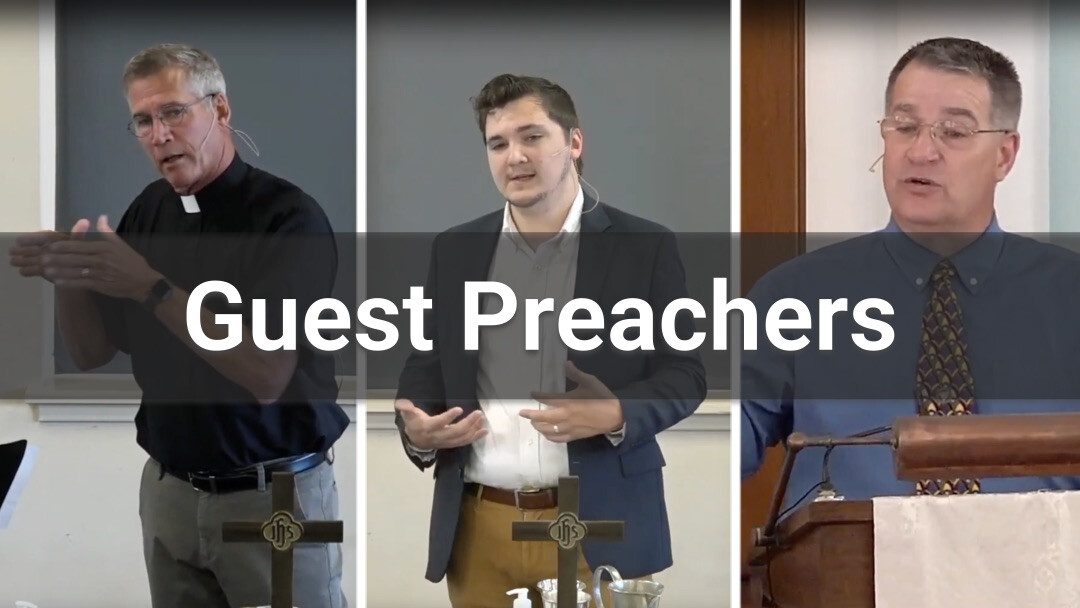
When Pastor Peter is away Second City Church is blessed to hear other men God has gifted to preach.

